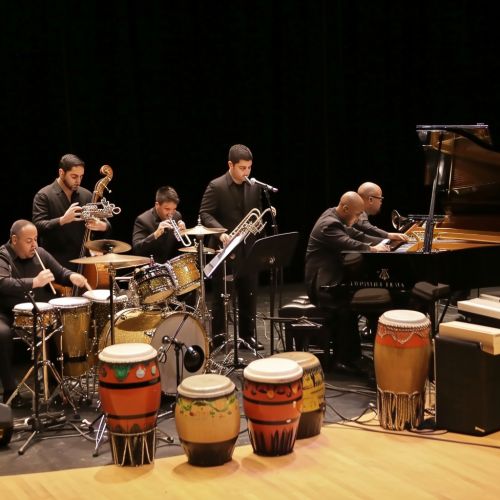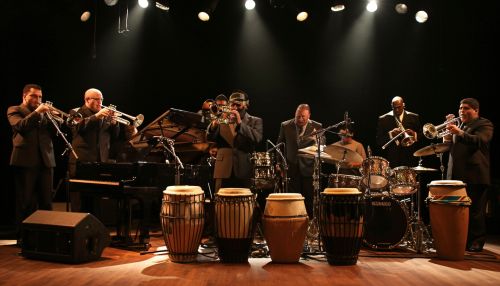Salsa music
Origins and History
Salsa music is a popular genre of Latin American music that originated in the mid-20th century in Cuba and Puerto Rico. It is a synthesis of various musical genres including the Cuban son montuno, guaracha, cha cha cha, mambo, and bolero, as well as elements of jazz and rock music. The term 'salsa' was coined in New York City during the 1970s by musicians and record producers as a catch-all term for the diverse range of Latin music styles that were gaining popularity among the city's Hispanic population.


Musical Elements
Salsa music is characterized by its rhythm, which is based on the clave pattern. The clave is a rhythmic pattern that forms the basis of many Afro-Cuban rhythms and is integral to salsa music. Other important elements of salsa music include the montuno, a repetitive piano pattern, and the tumbao, a rhythmic pattern played on the conga drum.
Instruments
Salsa music is typically performed by a large ensemble that includes a variety of instruments. The rhythm section is comprised of percussion instruments such as the conga, bongo, timbale, and maracas. The melody is often carried by the piano, bass, and a horn section that can include trumpets, trombones, and saxophones. The lead vocals are often accompanied by a chorus of backup singers.
Styles and Variations
There are several styles and variations of salsa music, each with its own unique characteristics. Some of the most popular styles include salsa dura, salsa romantica, and salsa cubana. Salsa dura, also known as hard salsa, is characterized by its aggressive and driving rhythm. Salsa romantica, on the other hand, is a softer, more romantic style of salsa music. Salsa cubana, also known as Cuban salsa or casino, is a style of salsa music and dance that originated in Cuba.
Influence and Impact
Salsa music has had a significant impact on popular music and culture. It has influenced a variety of other music genres, including jazz, R&B, and rock music. It has also played a crucial role in the development of Latin pop and reggaeton. Moreover, salsa music has been instrumental in promoting Latin American culture globally, and has contributed to the growing popularity of Latin music in non-Hispanic countries.
